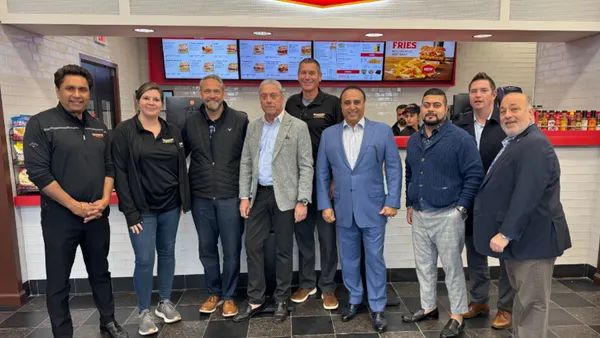Sastry Penumarthy is the co-founder and head of strategic alliances and partnerships at Punchh
Highly ranked on nearly every list of “trends to watch” for restaurants (or any industry these days) is the unstoppable march of AI & machine learning into every aspect of marketing and customer experience.
The hype is very real, and it is time for brands to quickly move beyond the buzzwords and start digging deep into what machine learning means for their business. For brands born and raised in the online world, the transition from data-driven to “machine-led” marketing & experience customization will be a relatively easy one. For brick and mortar retailers, there are greater challenges but, arguably, even more opportunities, in the offering. The key is to have a “closed-loop” platform that has fast time-to-market, low TCO, fits your business, and adapts to changing dynamics.
To help get you started, here are 6 questions any brick and mortar retailer or restaurant should ask themselves when implementing machine learning:
Question 1: Can you gather data from anywhere and in real-time?
-
The brands that will succeed in deploying AI won’t waste money on system integrations just to collect and pool data after the fact. Those that succeed will invest in technologies that gather data about consumers automatically through any interaction, online and offline, through all channels including apps, loyalty programs, offers, e-commerce, point-of-sale, kiosks, drive-thru, wifi, email, sms, etc and more.
Question 2: Is your data clean?
-
It’s a golden rule for any data analyst or data engineer: bad data in, bad data out. When it comes to AI, that rule becomes even more critical - if you are trusting your customer experience, marketing and loyalty programs to machine learning, you *must* not only collect data, but also make sure it is “clean”, which can be laborious, expensive, and time-consuming, but is nonetheless critical to success.
Question 3: Is your AI literate?
-
Any data you collect has to be machine readable. This is another version of making it “clean” but, what looks “clean” to a human doesn’t necessarily mean a computer knows what it means. Technologies like natural language processing (NLP) help to bridge this gap, but the onus will largely be on your team to make sure your AI can tell that Ch Piz, Chz Pza, and Cheese Pizza are all the same.
Question 4: Are your models the right fit for your brand?
-
Not all models are created equal. Imagine wearing a suit from a department store and expecting to look awesome on a catwalk, without going through a proper ‘fitting’. AI / personalization models are the same way. Your model needs to be fit to your brand/stores/consumers and adapt to the seasons. Models have occasions too! Models that work for customer acquisition, models that work for loyalty, and models that work on a rainy-day - but they all must fit your brand.
Question 5: Can you close the loop?
-
Your AI driven systems need to automatically deliver your offers via any channel, connect with any marketing cloud, and measure not just ‘marketing results’ but ‘real’ results. While most marketing clouds and mobile marketing platforms have focused endlessly on open rates, click-rates, the only meaningful metric today is % lift in sales and the associated attribution to a specific marketing offer/campaign. An AI system that understands your data but then does not effectively close the loop is worse than no AI at all.
Question 6: How fast and tunable is your AI?
-
Great AI learns fast and adapts fast. For large brands in terms of geography, number of locations, customers served, or anything else, the world is constantly changing. New data, new customers, new products, new conditions at different locations. Any system that is not responsive to these vast and rapid changes will not serve you, or your customers, as well as your extremely adaptable human staff can.
Ultimately, all of the above may make AI / machine learning systems feel like a lot of work, when the whole promise is that they will reduce the workload. That’s true: the work and investment up-front will be significant, but the rewards later are even more so. The simple fact is that every industry is headed down the AI path and in our experience at Punchh, no industry has more to gain from its intelligent implementation than brick and mortar retail. The e-commerce world was born in these systems, they are digital natives and are defining the modern customer experience and marketing strategies. It’s time for the “real world” to get onboard and, in order to do it right, keep our six questions in mind









